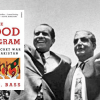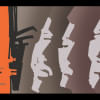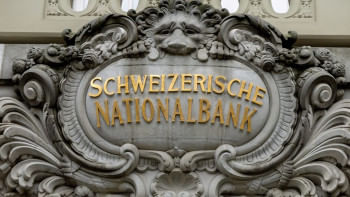The unsung heroes who introduced Bangladesh to the world

"My friend came to me
With sadness in his eyes
He told me that he wanted help
Before his country dies
Although I couldn't feel the pain
I knew I had to try
Now I'm asking all of you
To help us save some lives
Bangladesh, Bangladesh
Where so many people are dying fast
And it sure looks like a mess
I've never seen such distress
Now won't you lend your hand and understand?
Relieve the people of Bangladesh…"
This is how George Harrison introduced Bangladesh at the Madison Square Garden in New York City on August 1, 1971. With his long-time friend Ravi Shankar, he appealed to the 40,000 spectators and numerous onlookers around the world to stand by Bangladesh, a "non-recognised" country that was fighting for its rightful cause. Prior to this, the crisis in then East Pakistan had received little attention globally, particularly among US' youth who had limited knowledge about the situation and were unaware of their government's involvement. The global media also considered the war Pakistan's internal conflict, and no one had presented it as Bangladesh's crisis till then.
At the onset of the conflict, a significant number of Bangalee refugees were able to escape the genocide perpetrated in East Pakistan by the Pakistani military, and sought shelter in various camps in India. However, these refugees encountered additional challenges such as the risk of starvation, inadequate sanitation, and the spread of life-threatening diseases like cholera. In June 1971, The Sunday Times published an influential article by Pakistani journalist Anthony Mascarenhas titled "Genocide," which exposed the horrifying atrocities committed by the Pakistani forces in East Pakistan. Deeply affected by this distressing report, renowned Indian classical musician Ravi Shankar (himself a Bangalee) brought the issue up to Harrison, his friend, to organise something for those who were not receiving sufficient attention from the international community. George Harrison, who had just left The Beatles a few months prior, took this as a call of duty and initiated correspondence with his musical colleagues and friends, including Bob Dylan and former bandmates John Lennon, Paul McCartney, and Ringo Starr. Lennon declined to participate due to personal reasons, but the others joined the cause. It is worth noting that, a few weeks after the successful Concert for Bangladesh, Lennon released his renowned composition "Imagine." One may speculate that perhaps this song emerged from his anguish over not being able to partake in the charity concert that garnered massive global acclaim.
Harrison and Shankar then grouped several of the most luminous pop stars of the 70s under one roof and named the event Concert for Bangladesh. The lineup of performers was truly remarkable: Bob Dylan, Eric Clapton, Ringo Starr, Leon Russell, Klaus Voormann, Billy and Don Preston, bands Badfinger and The Hollywood Horns, Ustad Allarakha, Ali Akbar Khan, and, of course, Harrison and Shankar themselves. The aim of this monumental concert was to collect as much money as possible for the victims of the Bhola cyclone and the Bangalee refugees living in Indian camps.
It is important to note that, prior to this event, the name Bangladesh had not been officially recognised by any country, and even Bangladeshis themselves had doubts about receiving support from the West during that critical time of the war. Furthermore, a positive branding of Bangladesh had not yet been established in the Western world, as the US media had so far referred to the conflict as the East Pakistan civil war. The then US President Richard Nixon also openly supported the military regime in Pakistan through his controversial Tilt Policy, while his secretary, Henry Kissinger, had conducted a secret visit to China and agreed to assist Pakistan in the event of Soviet intervention. Despite these geopolitical circumstances, the rockstars involved in the concert demonstrated remarkable courage by endorsing Bangladesh as a country fighting for its freedom.
The attention that Bangladesh received after the concert, especially in the United States, was tremendous. Following this concert, several other concerts for Bangladesh took place in different parts of the world. One of the most notable events was "Goodbye Summer," a rock concert that took place on September 18, 1971 at The Oval in London. All these concerts played a crucial role in raising public awareness about the humanitarian crisis in East Pakistan, a phenomenon that was previously absent. The Pakistani authorities were greatly angered by the widespread popularity and impact of these concerts, albums and, specifically, George Harrison's song "Bangla Desh," on the Western world. However, the Concert for Bangladesh and the successive live album and film together raised approximately $12 million by 1985, which was donated to Unicef to support aid missions in the refugee camps in India and to Bangladesh directly.
It is rather astonishing that the government and people of Bangladesh have shown relatively minimal recognition for the two prominent musicians who played a significant role in introducing the country to the world. Despite their selfless dedication to the people of Bangladesh, these musicians have not been acknowledged with the highest honour of the country for non-nationals, the Swadhinata Sammanona. Furthermore, there has been no establishment of a musical school, gallery, or a prominent street named after them. Is it really unreasonable to expect for Bangladesh to acknowledge and honour these often overlooked foreign individuals who played a significant role in promoting the name of Bangladesh internationally, even prior to its establishment?
Muhammad Asiful Basar is senior lecturer (on study leave) at North South University and a PhD student at the University of Antwerp. Reach him at [email protected]

 For all latest news, follow The Daily Star's Google News channel.
For all latest news, follow The Daily Star's Google News channel. 










Comments